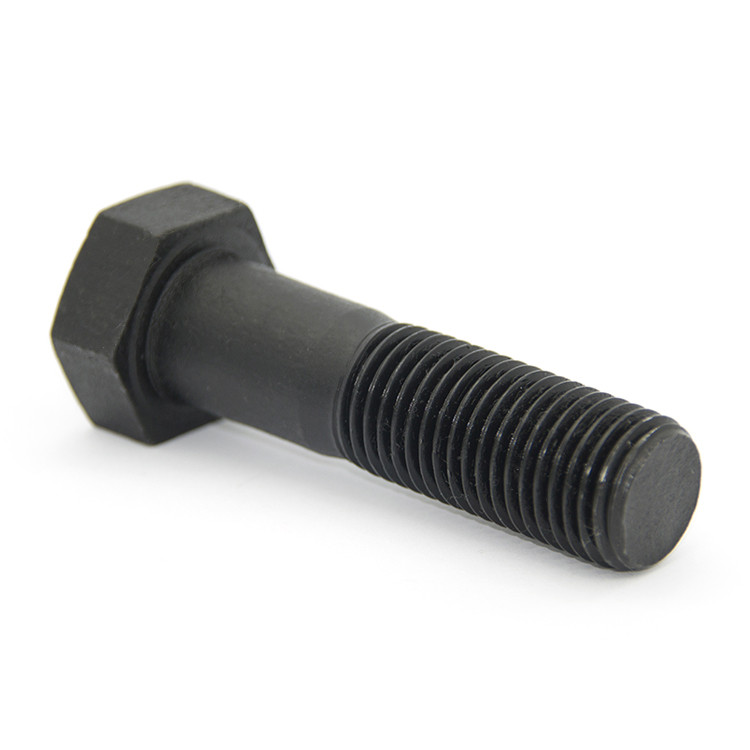batter stud bolt exporters
Nov . 08, 2024 16:23 Back to list
batter stud bolt exporters
The Significance of Stud Bolt Exporters in the Global Market
In the global industrial landscape, the demand for reliable and durable fasteners is ever-increasing. One such product that plays a critical role in various applications is the stud bolt. Stud bolts are essential components in numerous industries, including construction, manufacturing, and energy. The rise of stud bolt exporters has paved the way for the widespread availability of these vital components across different markets. This article delves into the significance of stud bolt exporters, their contributions to the industry, and the factors influencing their operations.
Understanding Stud Bolts
Stud bolts are cylindrical fasteners with threads along their length. They are primarily used to connect two or more components securely. Unlike regular bolts, stud bolts typically do not have a head and are inserted into the components they join, with nuts fastened at each end. They are widely used in heavy applications such as pipelines, pressure vessels, and various machinery setups. The reliability of these fasteners is paramount, as failures in critical applications can lead to catastrophic outcomes.
Role of Stud Bolt Exporters
Stud bolt exporters are crucial in facilitating the trade of these fasteners across borders. They offer manufacturers access to international markets, allowing them to source quality materials and components needed for their operations. Exporters also play a pivotal role in ensuring that various industries meet their supply needs, especially in regions where local production may not suffice.
Exporters often partner with manufacturers to understand the specific requirements of their end clients. This collaboration helps in the production of customized fasteners tailored to various applications. Additionally, exporters must stay updated on international standards and regulations to ensure that the products they supply comply with industry norms. This attention to quality and compliance not only meets customer expectations but also strengthens relationships between exporters and their clients.
Market Dynamics Influencing Exporters
batter stud bolt exporters

Several factors influence the operations of stud bolt exporters in today's market. Firstly, the growing construction and infrastructure development in emerging economies has led to an increased demand for robust fastening solutions. As countries invest in building infrastructure, the requirement for durable stud bolts becomes paramount. Exporters that can tap into these emerging markets stand to benefit significantly.
Secondly, advancements in technology and manufacturing processes have revolutionized the production of stud bolts. Exporters now have access to high-tech machinery and methods that enhance the quality, durability, and cost-effectiveness of fasteners. The advent of automated production lines and quality control systems enables exporters to ensure that their products meet stringent international standards.
Moreover, geopolitical factors can impact export operations. Trade policies, tariffs, and international relations can influence the flow of stud bolts across borders. Exporters must be agile and adaptable, continuously assessing the market landscape to mitigate risks associated with changes in trade regulations.
Sustainability and Ethical Practices
In recent years, sustainability has become a critical concern for industries worldwide. Stud bolt exporters are increasingly focusing on eco-friendly practices, such as sourcing raw materials responsibly and reducing waste during the manufacturing process. Many exporters are now adopting sustainable practices not just out of necessity, but as a competitive advantage in an environmentally conscious market.
Additionally, ethical practices in labor and production are gaining prominence. Exporters that prioritize fair labor practices and transparency in their supply chains not only comply with international regulations but also build trust with their clients. This commitment to ethical operations enhances an exporter’s reputation and can lead to increased business opportunities.
Conclusion
The importance of stud bolt exporters in the global market cannot be overstated. They facilitate the trade of essential components that underpin numerous industrial applications. As industries continue to evolve and grow, the role of exporters will be pivotal in meeting the increasing demand for quality fasteners. By focusing on compliance, innovation, sustainability, and ethical practices, stud bolt exporters can continue to thrive in a competitive landscape. The ongoing advancements in technology and changing market dynamics are likely to shape the future of stud bolt exports, promising a robust framework for growth and development in this essential sector.
Latest news
-
Top Metric Wood Screw Companies | Durable & Reliable
NewsAug.01,2025
-
Premium Lawn Mower Handle Bolts Supplier | Fast Delivery
NewsJul.31,2025
-
Premium Silver Screws Supplier | High-Conductivity Fasteners
NewsJul.31,2025
-
Silver Screws Supplier: High-Quality Fasteners for Various Industries
NewsJul.30,2025
-
Top Spike Wheel Nuts Supplier - High Quality & Custom Options Available
NewsJul.29,2025
-
Top Wire Bolts Suppliers & Manufacturers – Quality Fasteners Factory
NewsJul.29,2025
